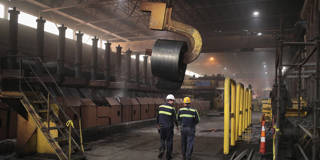US President Joe Biden has established three key economic-policy objectives: increasing the number of “good jobs”; strengthening US manufacturing and local production; and accelerating the adoption of modern technology. Nippon Steel's acquisition of US Steel would advance all three, so why has it aroused bipartisan opposition?
WASHINGTON, DC – Late last year, Japan’s Nippon Steel announced that it had reached a deal to acquire US Steel Corporation for $14.1 billion – a move that would make it the world’s second-largest steel producer by capacity. Nippon Steel agreed to retain US Steel’s name, keep its corporate headquarters in Pittsburgh, Pennsylvania, honor all contracts with union-represented workers, and preserve its manufacturing facilities, which will get a technological upgrade to raise productivity closer to Japanese levels. And Nippon Steel has pledged not to move existing production facilities or jobs overseas. It is a good deal.

WASHINGTON, DC – Late last year, Japan’s Nippon Steel announced that it had reached a deal to acquire US Steel Corporation for $14.1 billion – a move that would make it the world’s second-largest steel producer by capacity. Nippon Steel agreed to retain US Steel’s name, keep its corporate headquarters in Pittsburgh, Pennsylvania, honor all contracts with union-represented workers, and preserve its manufacturing facilities, which will get a technological upgrade to raise productivity closer to Japanese levels. And Nippon Steel has pledged not to move existing production facilities or jobs overseas. It is a good deal.